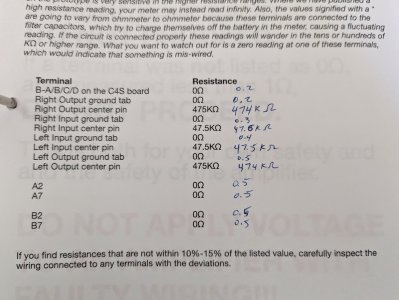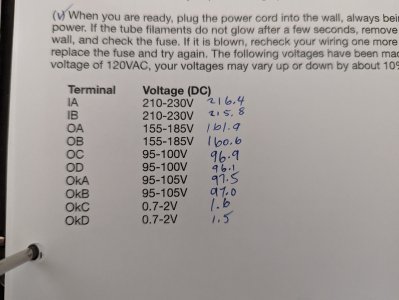Larpy
Member
I installed a new cartridge on my turntable (a Linn LP12) and am hearing intermittent distortion, in both channels and most noticeable on louder passages. I've checked and rechecked the geometry of the cartridge alignment, checked its VTF, etc, made sure the cartridge leads are tight, and I still have the problem.
I also checked the voltages of my Eros and they're all in spec. With one possible exception: the voltage from the PS board was 262v, when last I checked it (a couple of years ago?) it was 278v. Not a huge drop, but nothing has changed in the Eros since I last measured its voltages.
I've been thinking it's a defective cartridge, but I noticed today that records sound fine when I first turn on the Eros but sound distorted the longer I listen. Could the Eros be the problem once it warms up? I did notice the other day when I turned off the Eros to test it that its PT was very hot, too hot to touch for longer than a couple of seconds. Is that normal?
Is this a plausible suspicion? If so, can I confirm it by turning on the Eros, letting it warm up for 30 minutes and then testing its voltage?
I also checked the voltages of my Eros and they're all in spec. With one possible exception: the voltage from the PS board was 262v, when last I checked it (a couple of years ago?) it was 278v. Not a huge drop, but nothing has changed in the Eros since I last measured its voltages.
I've been thinking it's a defective cartridge, but I noticed today that records sound fine when I first turn on the Eros but sound distorted the longer I listen. Could the Eros be the problem once it warms up? I did notice the other day when I turned off the Eros to test it that its PT was very hot, too hot to touch for longer than a couple of seconds. Is that normal?
Is this a plausible suspicion? If so, can I confirm it by turning on the Eros, letting it warm up for 30 minutes and then testing its voltage?


